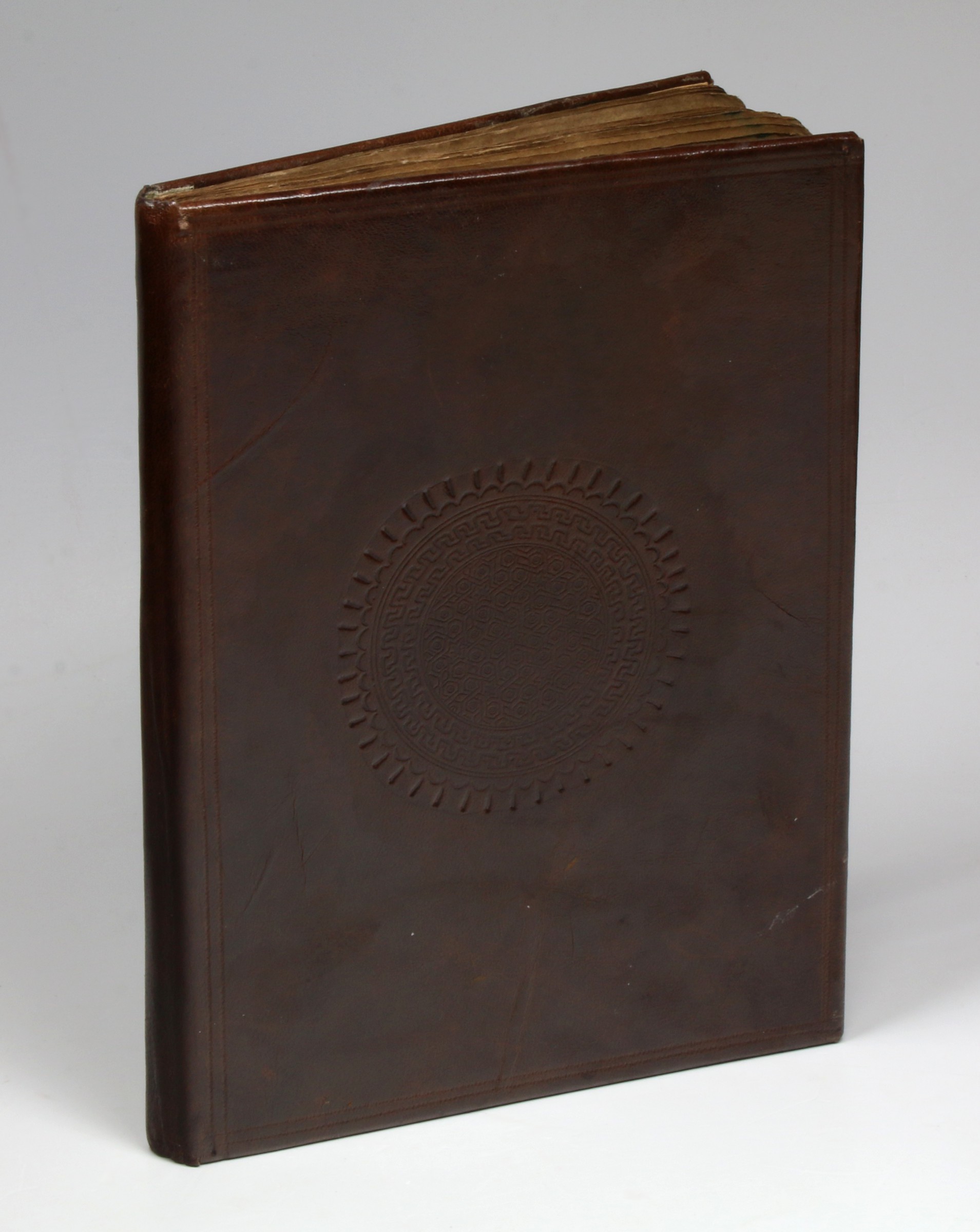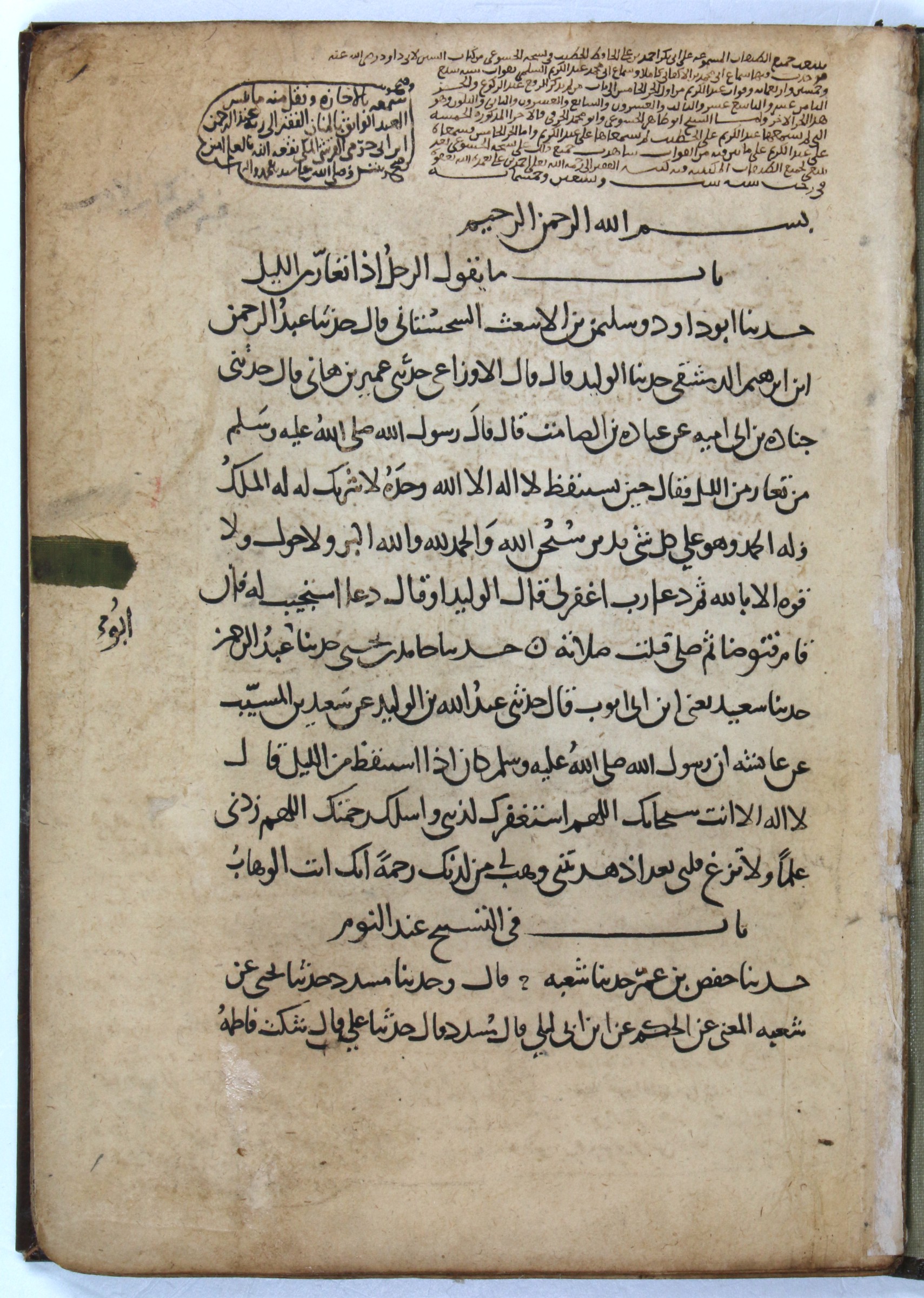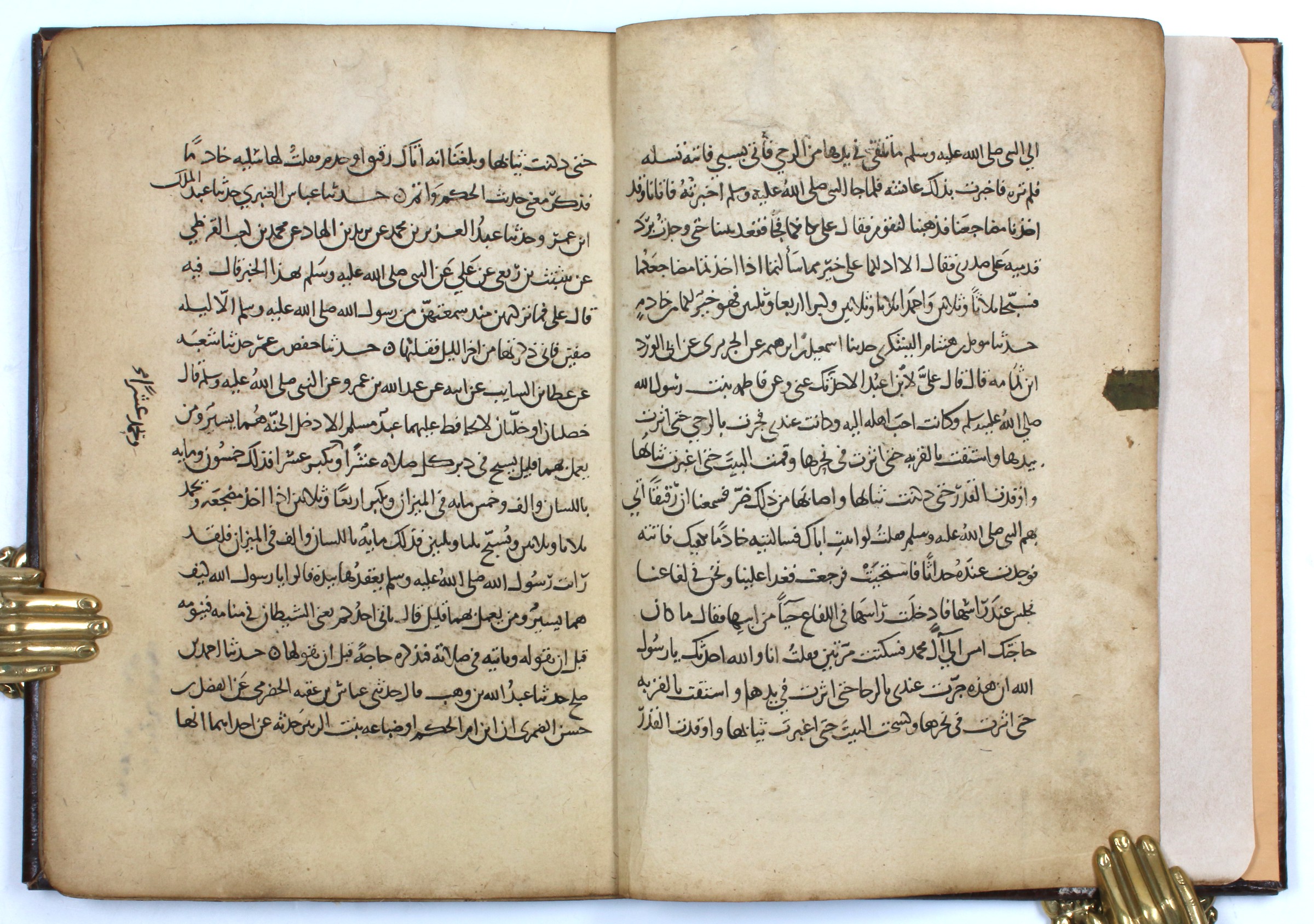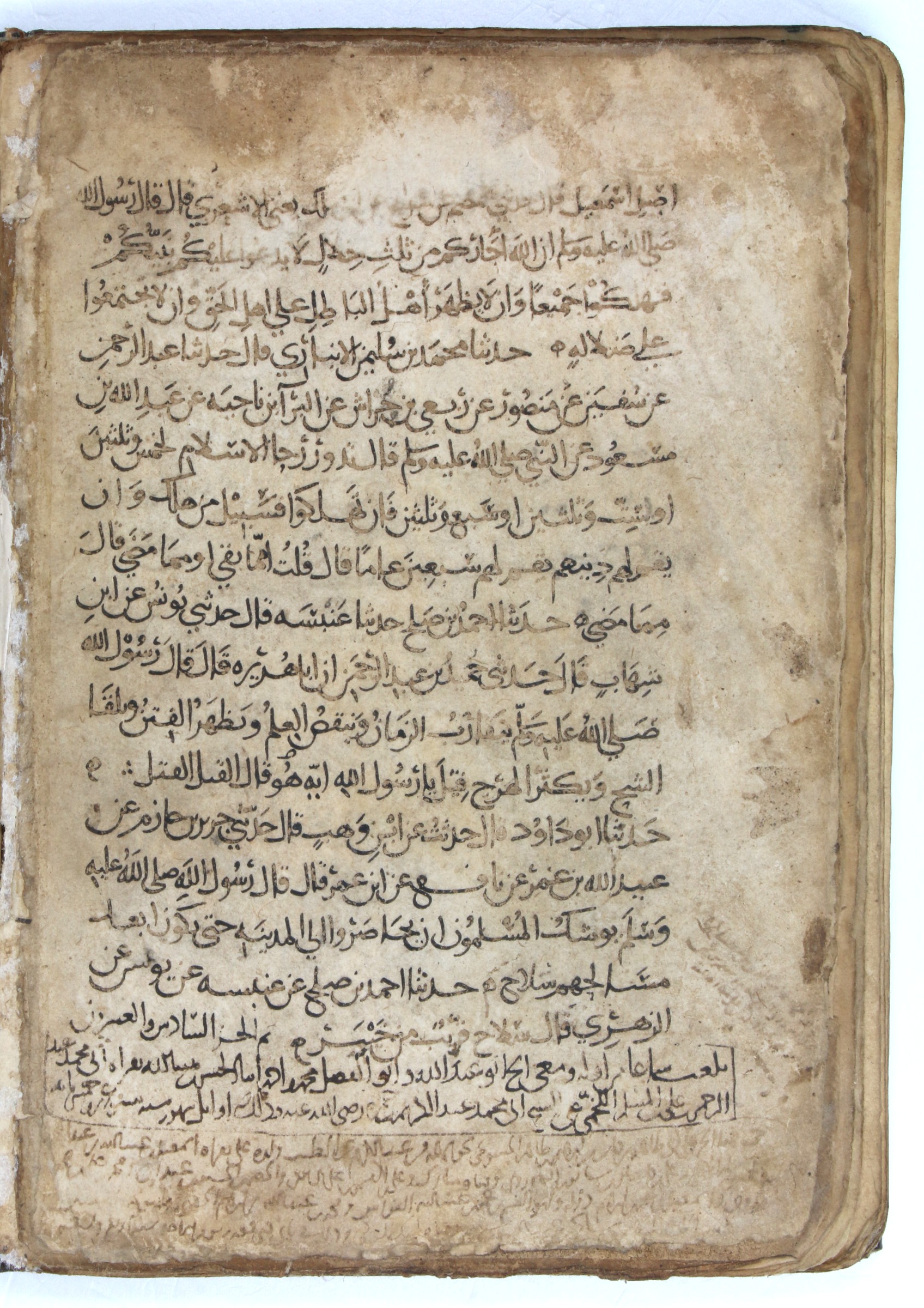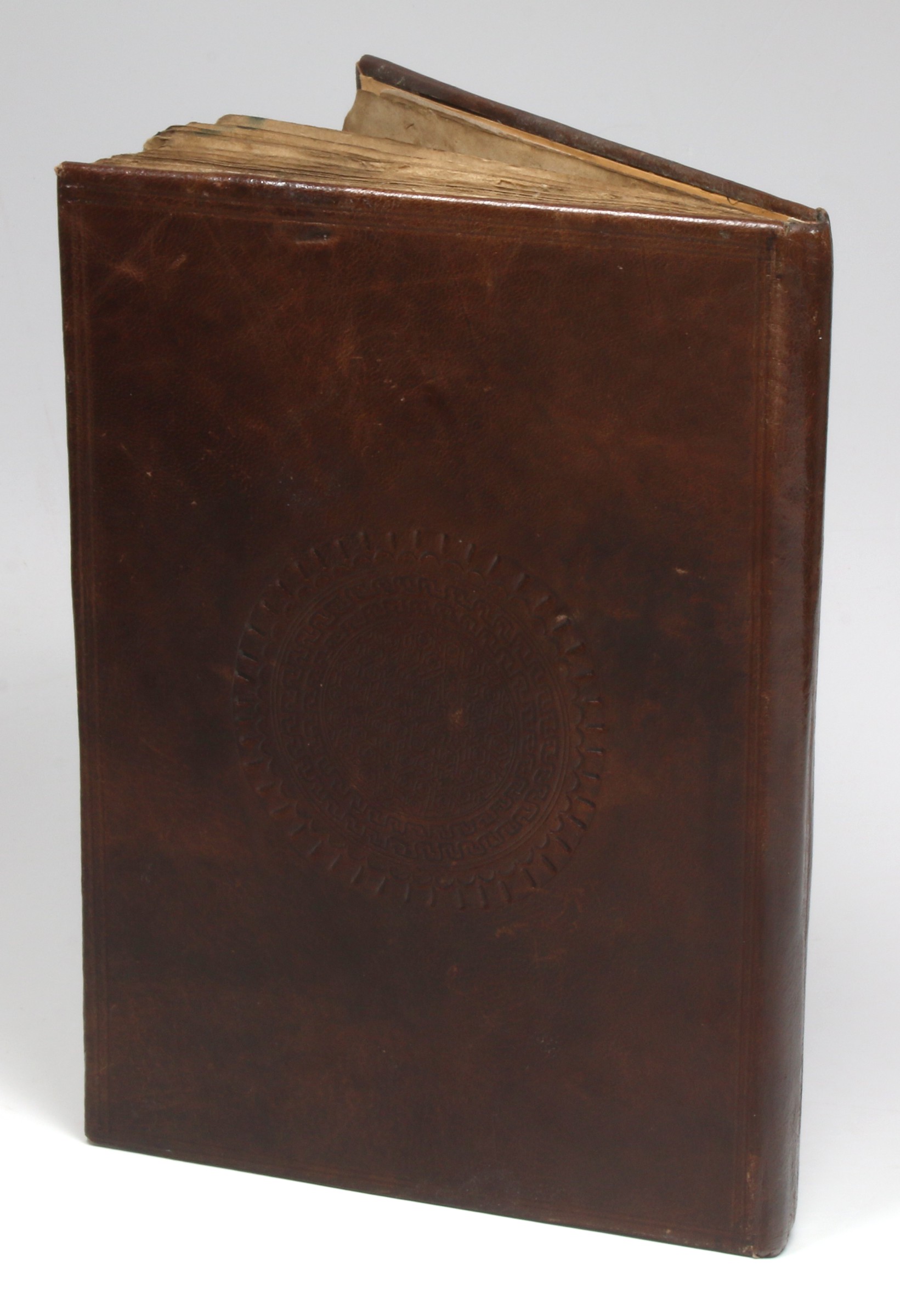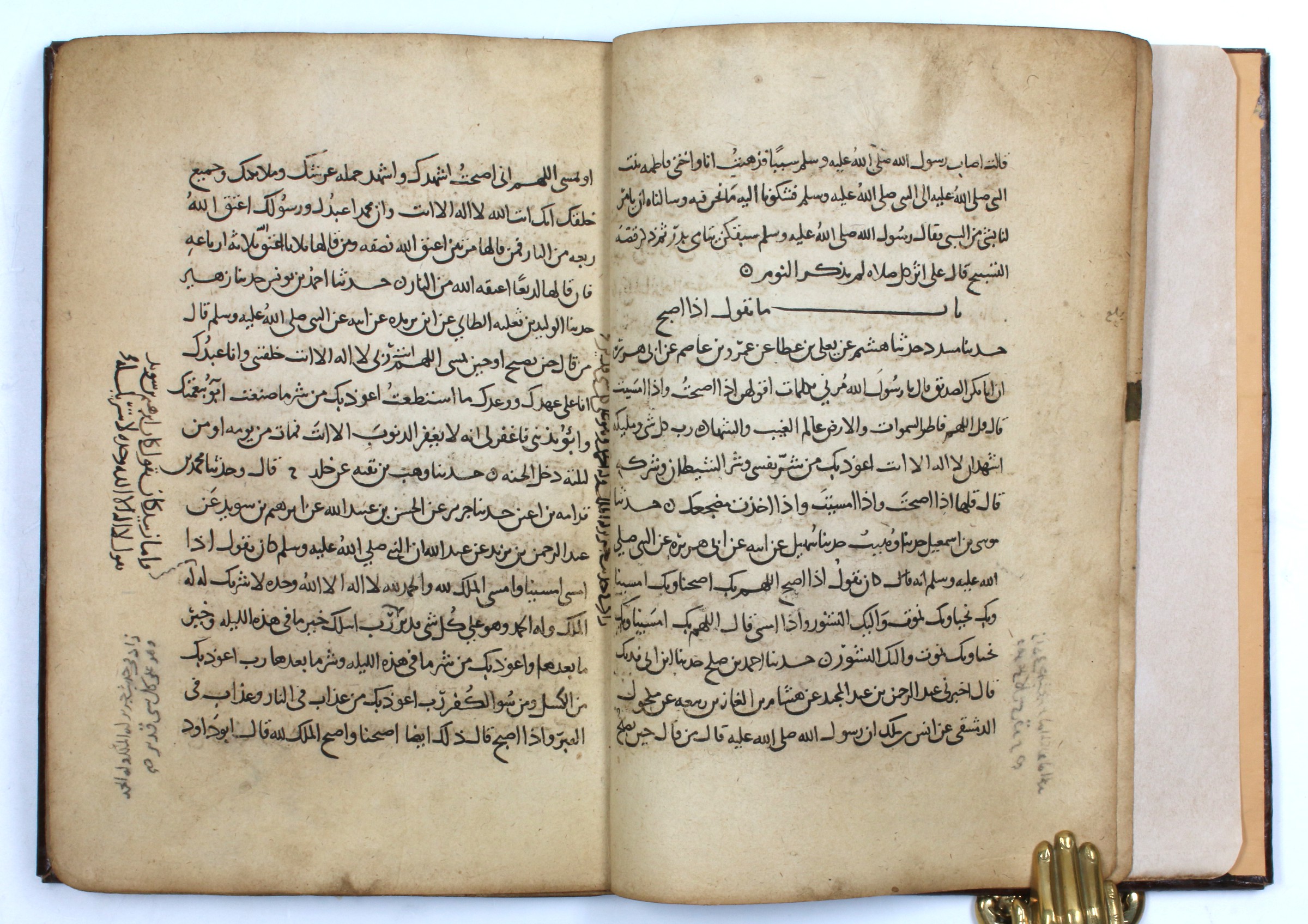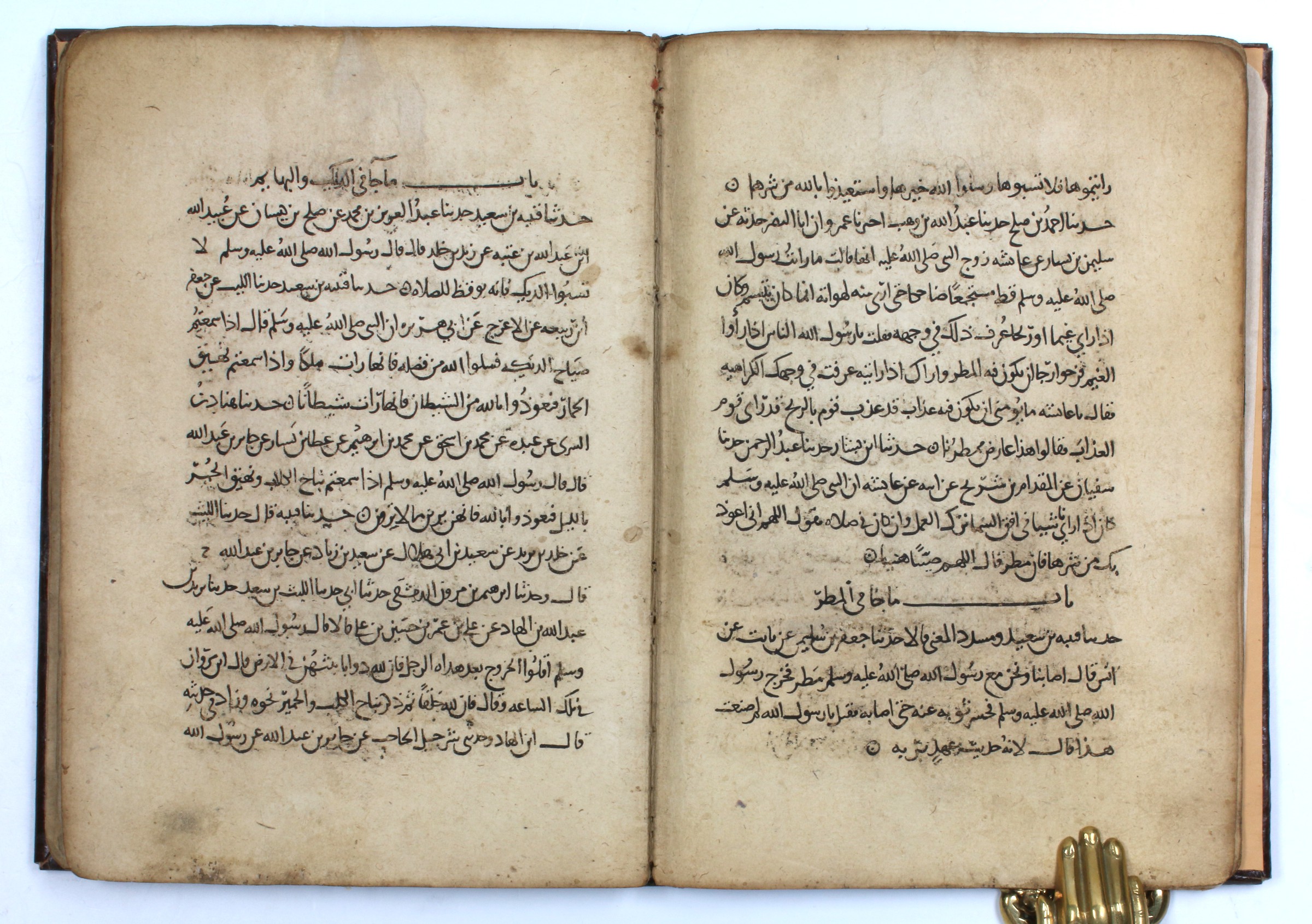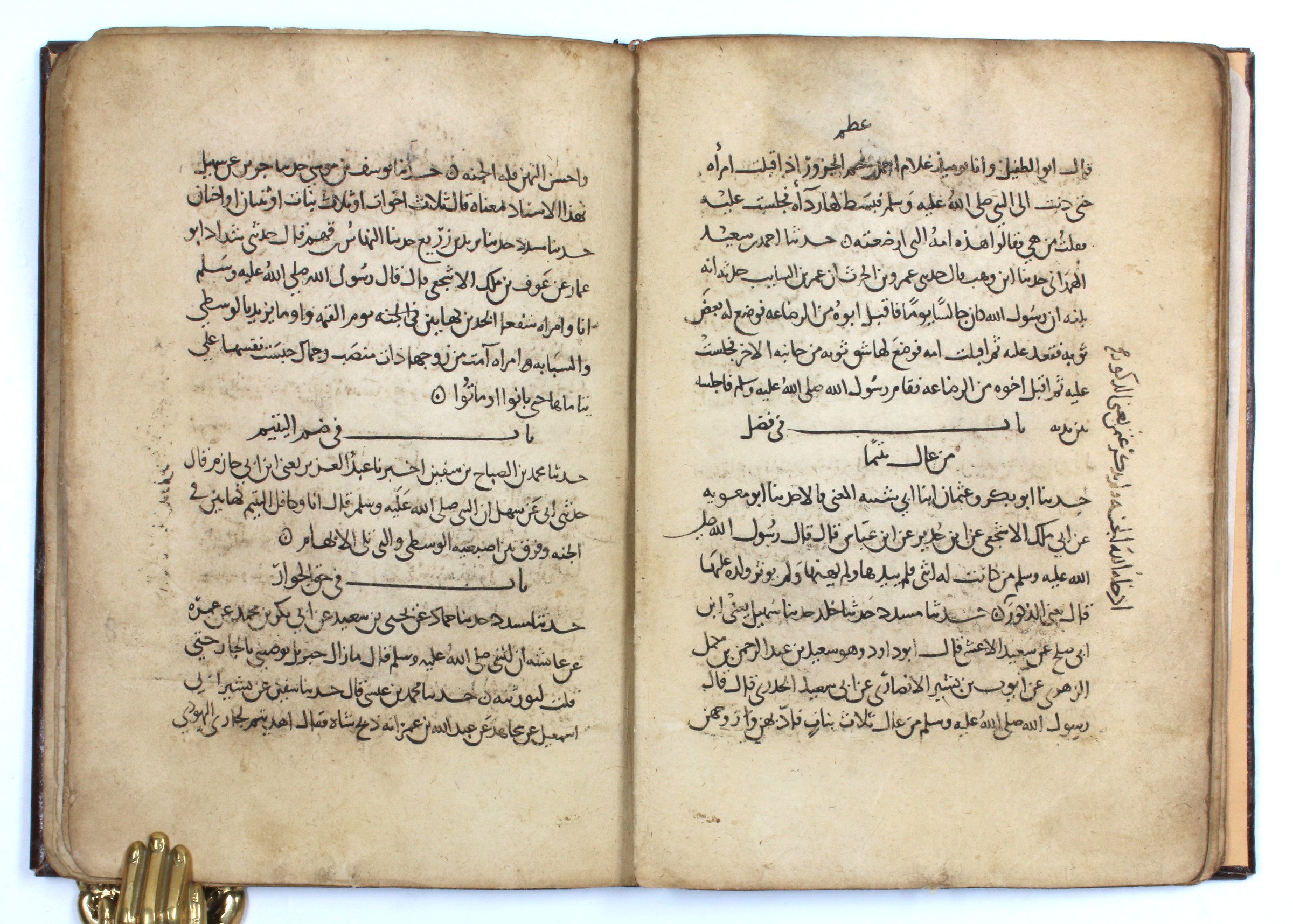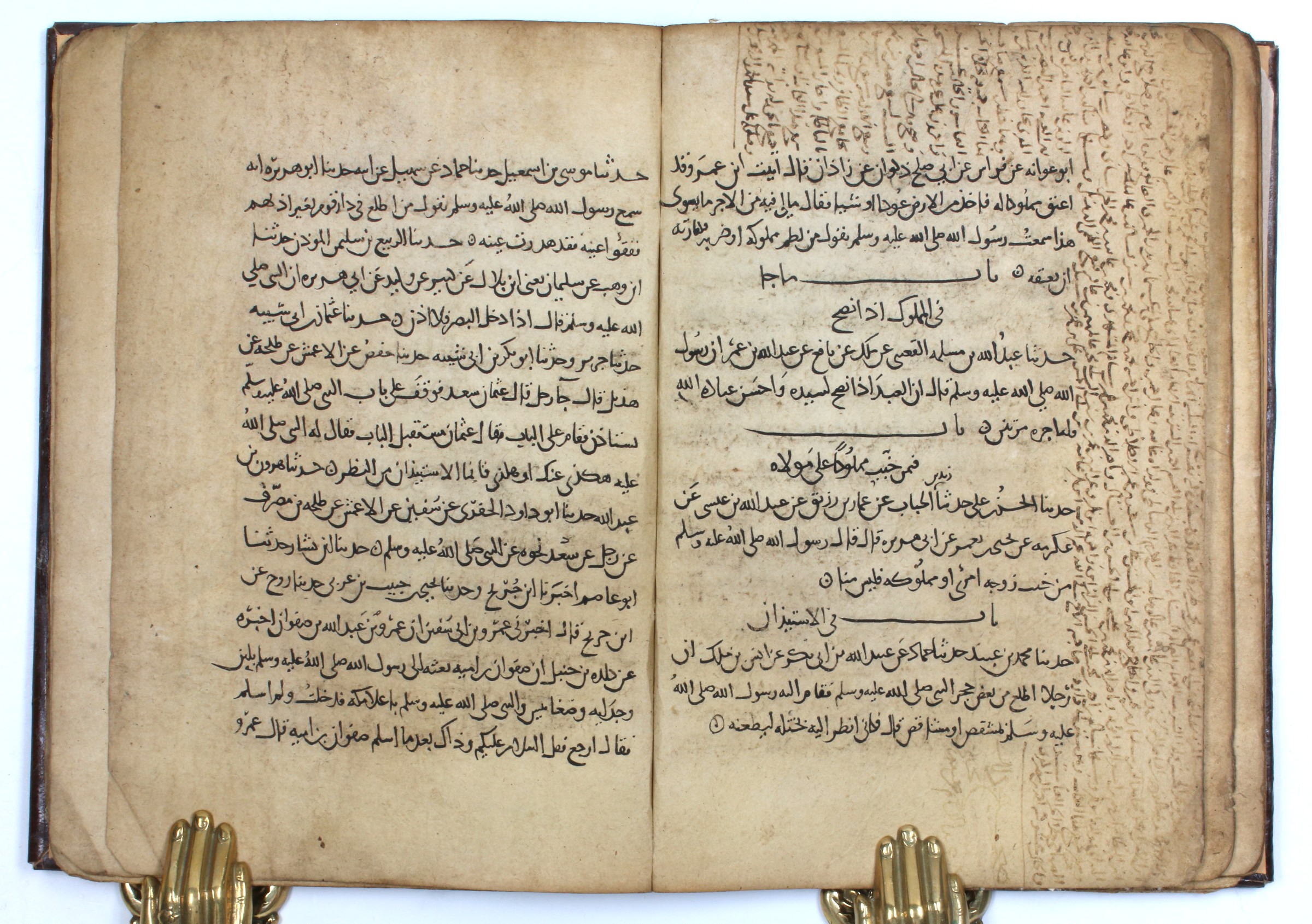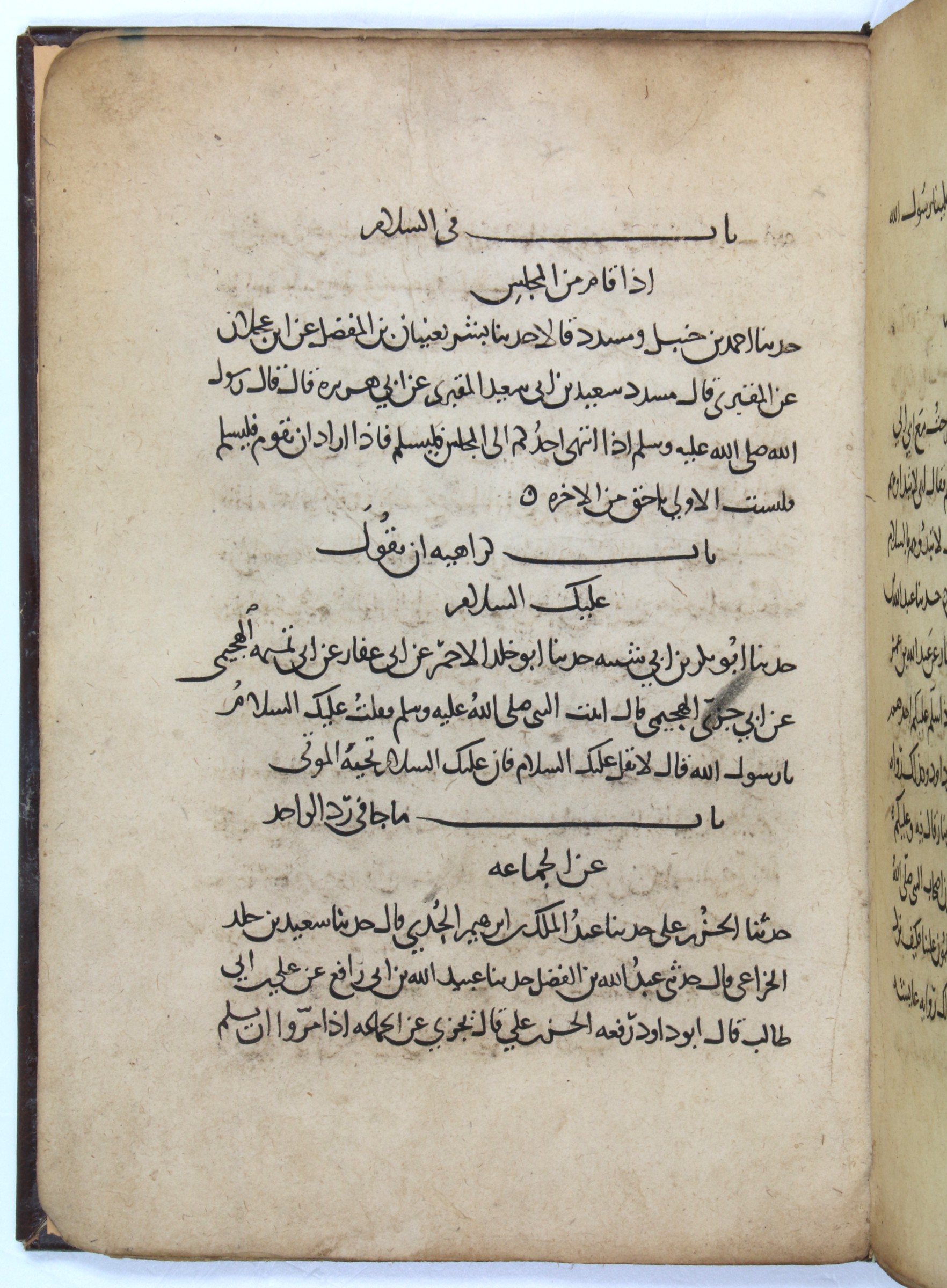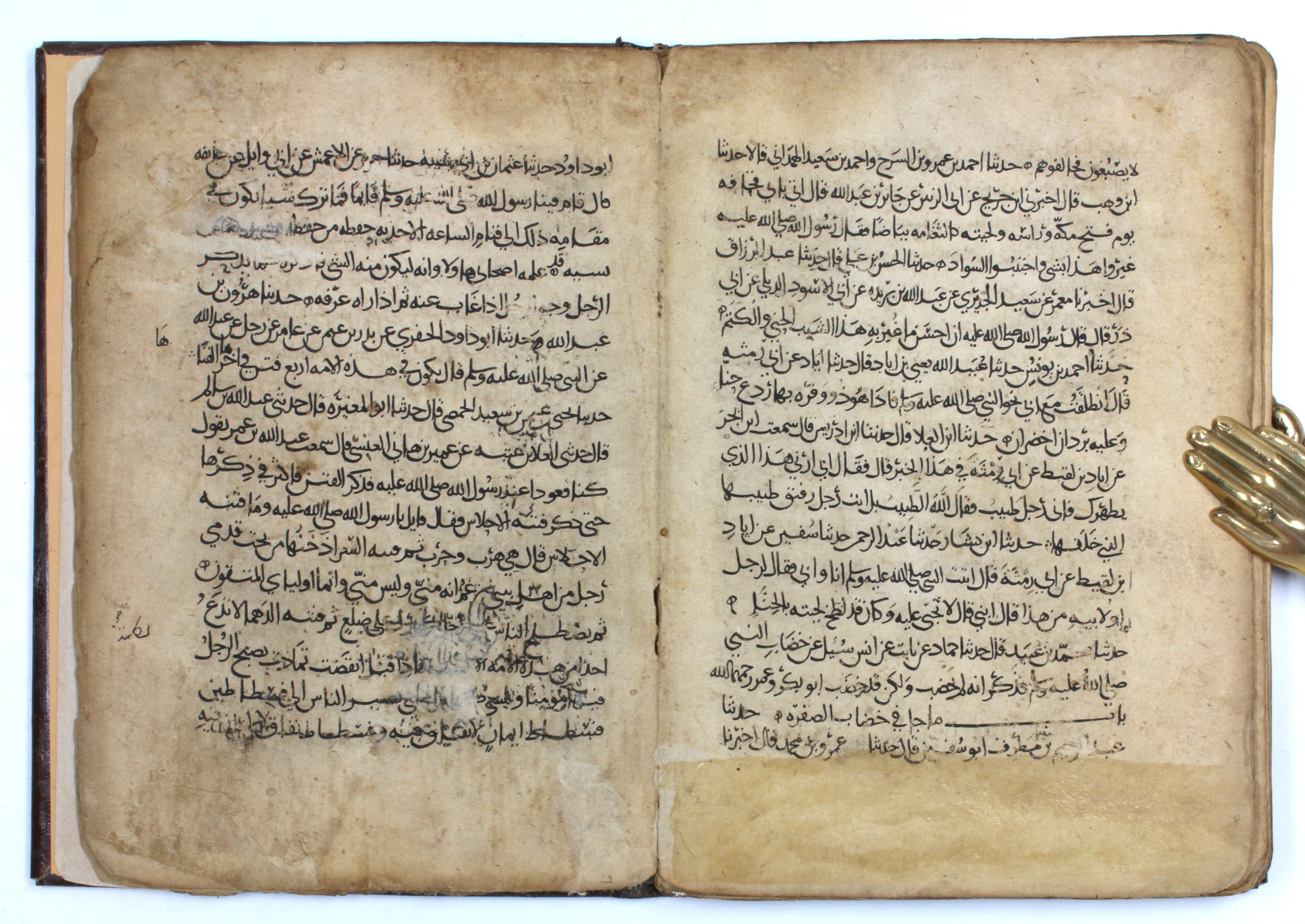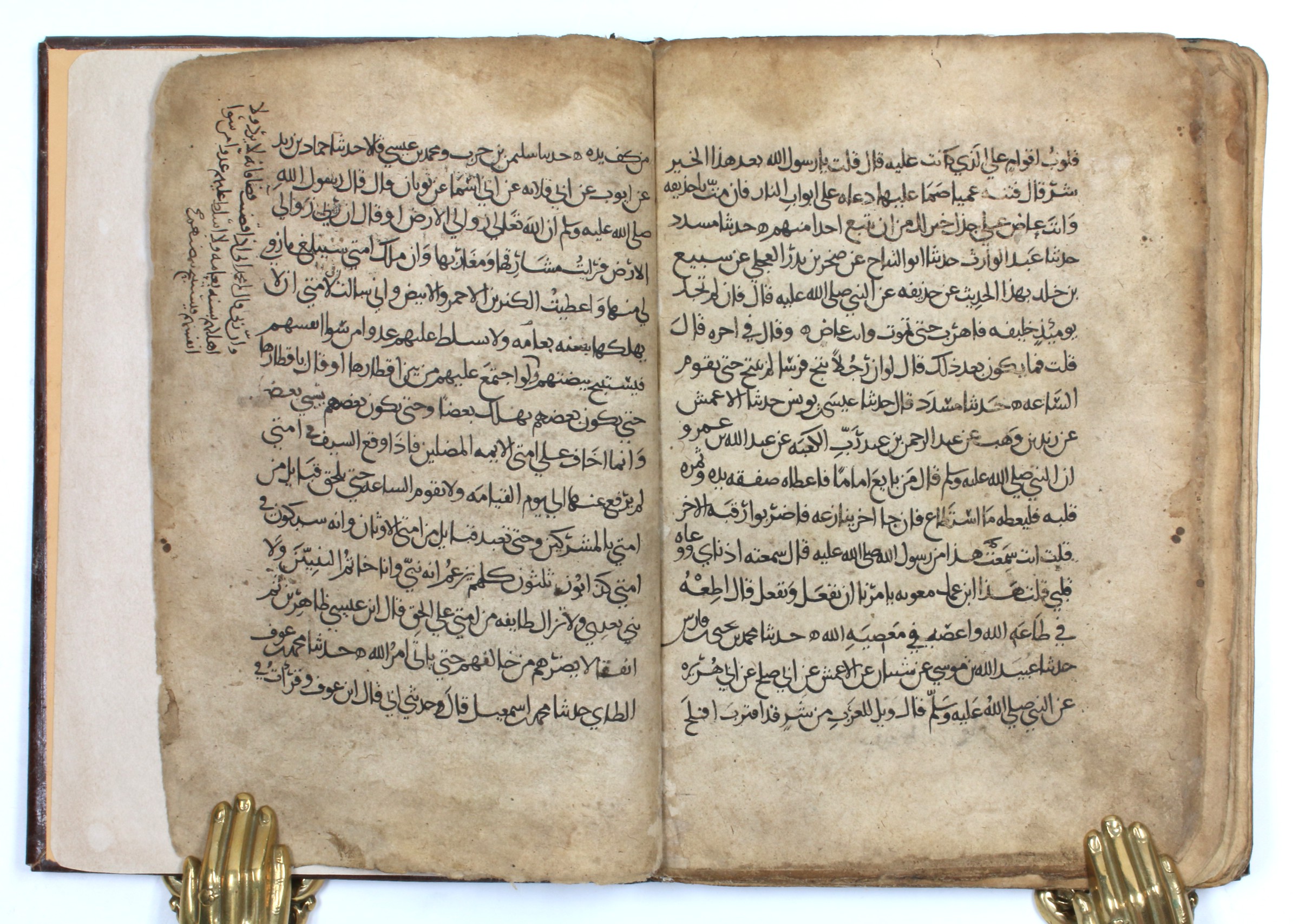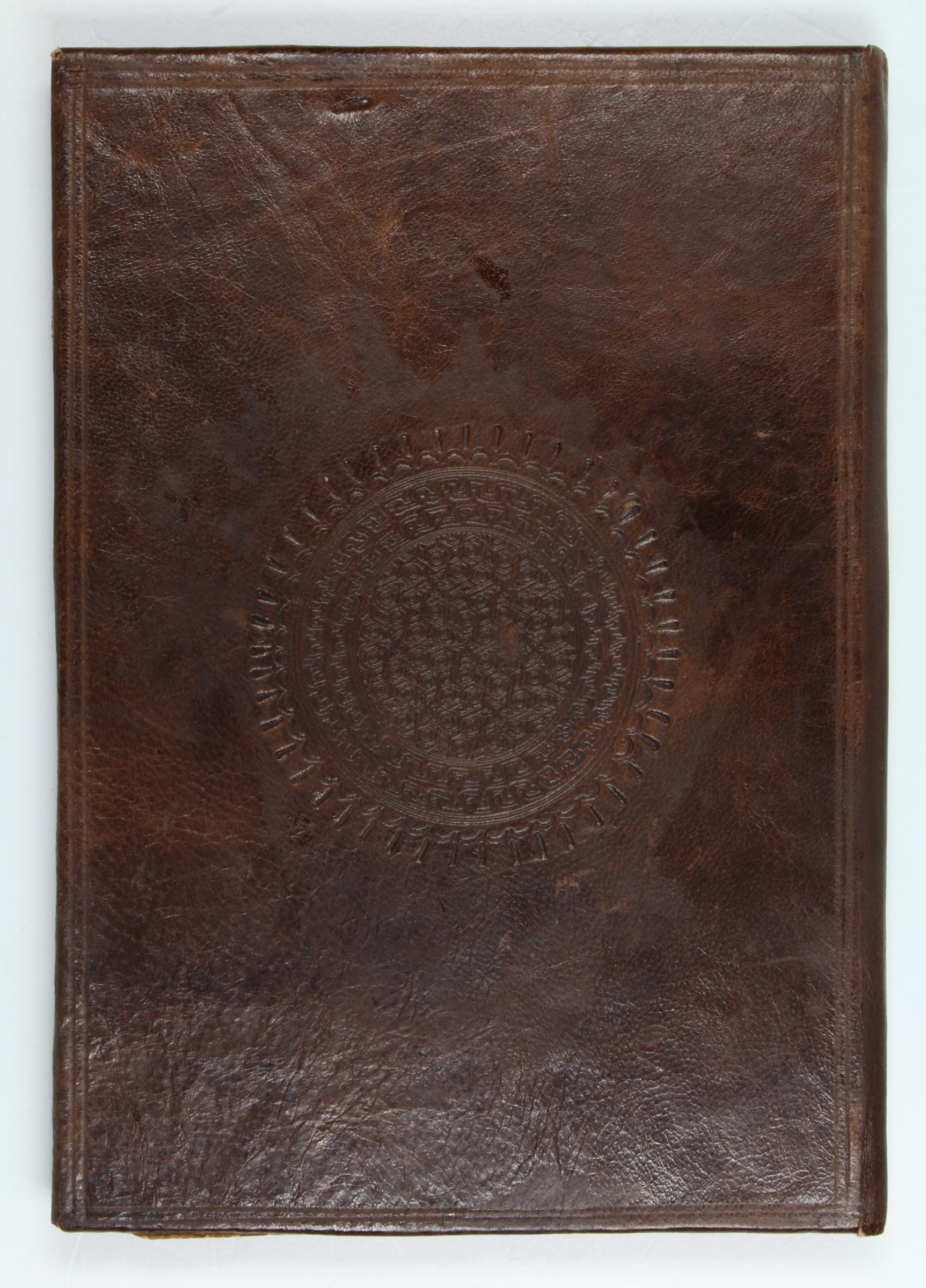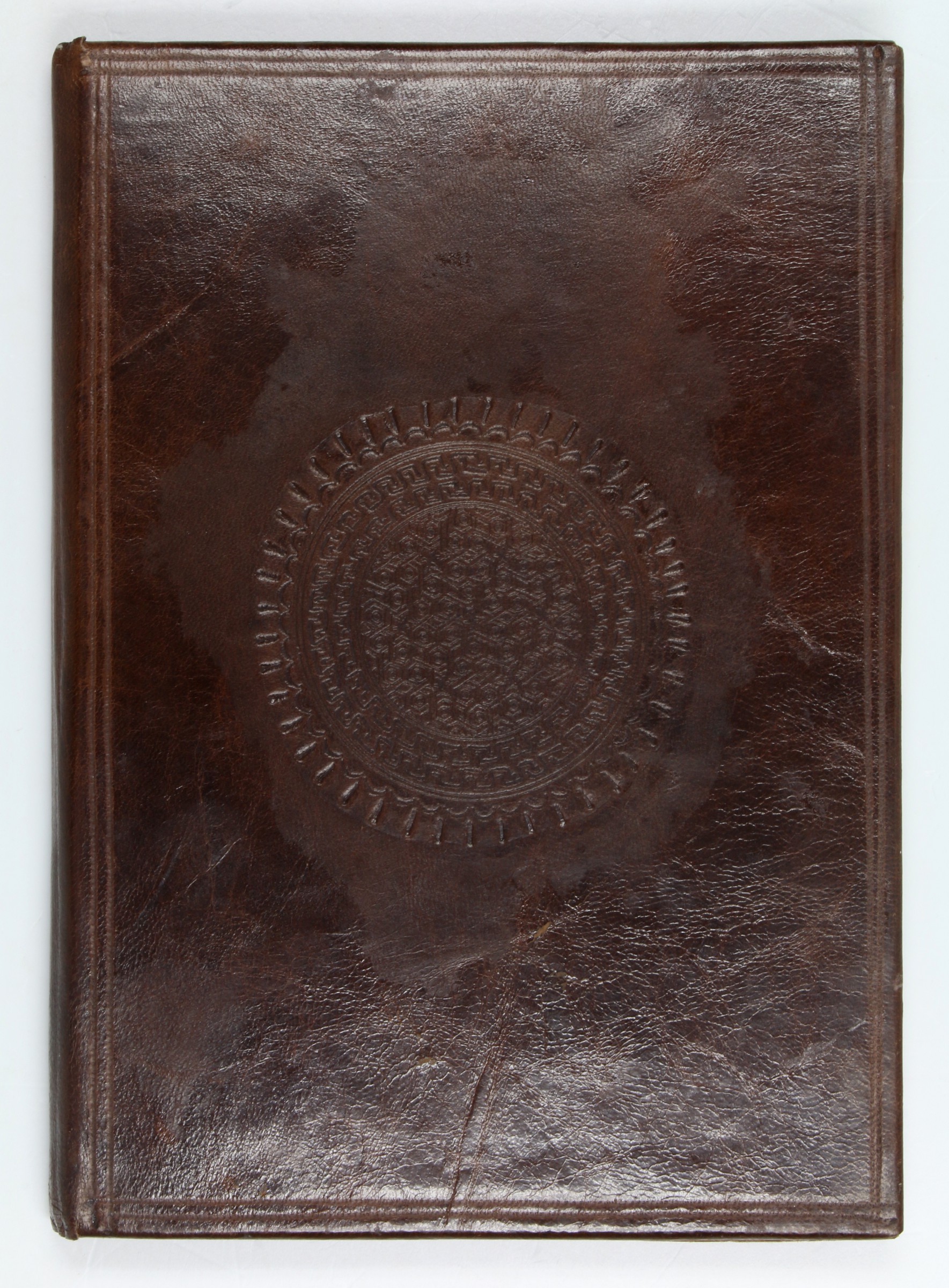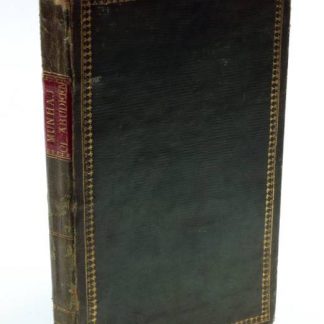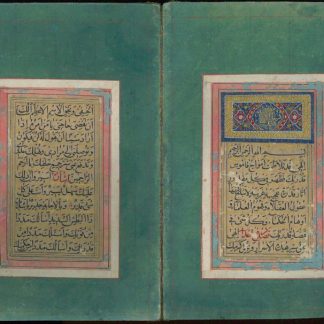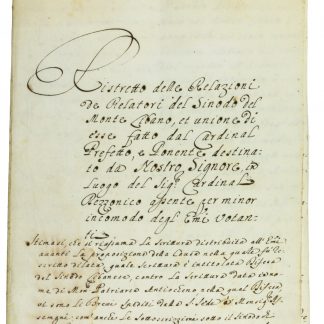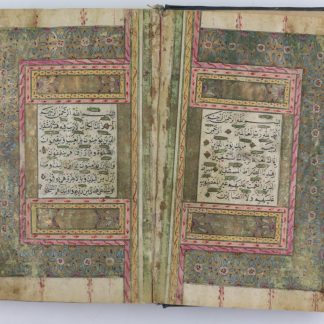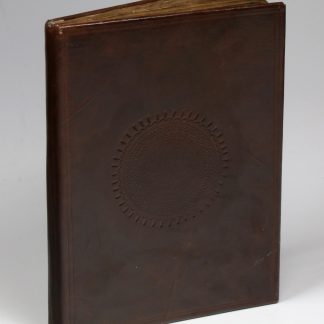An early, highly authentic copy of this important text, certified by well-known 12th century hadith scholars
Kitab Sunan Abi Dawud.
4to (165 x 236 mm). Arabic manuscript on paper. 30 ff., forming section 26 of the Kitab as-Sunan. 16 lines, per extensum, early cursive naskh in black ink. Some early marginal annotations in sepia, copied in a different hand. Modern morocco over pasteboards, covers stamped with central Mamluk-style medallions, ruled in blind.
€ 165,000.00
One of the earliest examples of this important hadith collection, the third of the six canonical collections ("Kutub al-Sittah") that form the principal sources of Muslim teaching after the Qur'an. While the first two of these so-called "Authentic Six", the extremely popular Sahih al-Bukhari and Sahih al-Muslim, were copied very frequently, the Sunan Abi Dawud is extremely rare both on the market and in institutional collections, in spite of the fact that it is ranked so highly in importance.
The scribe provides a so-called audition certificate which states the chain of textual tradition, further ensuring the authenticity and authoritative transmission of the text through a formal reading session. This colophon reads: "This was collated and revised from the very beginning of the text by way of audition, with Abu Abdullah and Abu-l Fadhl al-Hussain accompanying me, through recitation by Abu Muhammad Abd al-Rahman bin Ali bin al-Muslim al-Lakhmi to our teacher, Abu Muhammad Abd al-Karim bin Hamza (may God be pleased with him), during the early months of the year 526 H". Both of the latter-mentioned witnesses were well-respected hadith scholars based in Damascus: Abd al-Rahman bin Ali bin al-Muslim al-Lakhmi al-Dimashqi (d. 587 H / 1192 CE), the reader, was a known and trustworthy transmitter of this text who had received it from his teacher, to whom he here recites it, Abd al-Karim bin Hamza bin al-Khidr bin al-Abbas al-Dimashqi (who died during the 11th month of 526 H / 1132 CE, and thus later in the same year in which the colophon states this copy was written). Abd al-Karim in turn had received the text from his teacher, Al-Khatib al-Baghdadi (d. 463 H / 1071 CE), "the lecturer from Baghdad", a scholar respected as one of the foremost hadith and fiqh scholars and historians of his time. To protect the certificate from fraudulent interpolations, the scribe has drawn a line around it, as was common practice. The first leaf boasts two similar, additional audition certificates, one dated 596 H (1199/1200 CE).
Only a handful of examples of al-Sijistani's text have been traced in institutional collections that precede the present specimen: these are a 10th century copy of the second book in the Chester Beatty Library, Dublin (Arberry, Handlist of Arabic Mss. I, 49, no. 3123) and three manuscripts in the British Library, one dated 1117/18 AD (OR 8291), the other two described as "13th century" (OR 8290 & 8927, see Stocks/Baker, Subject Guide to the Arabic Mss. in the BL, p. 28).
A highly authentic copy of this text, certified by a strong chain of textual transmission through well-known 12th century hadith scholars. Given that both authorities were based in Damascus, the origin of the present manuscript can be placed there with a high degree of certainty.
UK private collection.
Leaves washed with some slight fading in places, a few professional repairs to gutter, otherwise a overall a clear and bright manuscript in an appealing later morocco binding.

